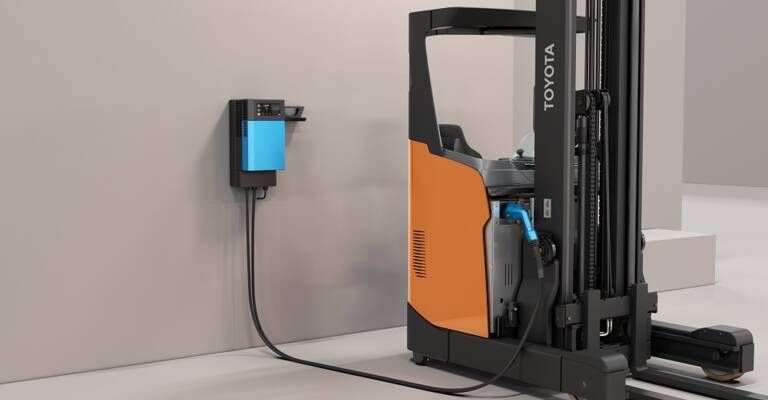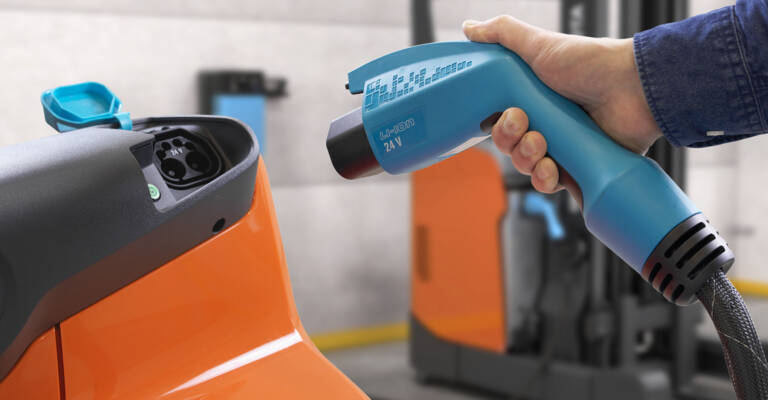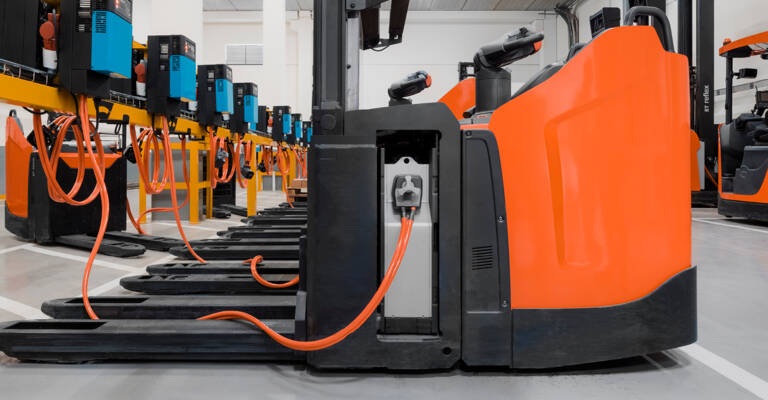25% of Toyota's electric forklifts come with a lithium ion battery
Lithium-ion is booming

Lead acid batteries have been a highly capable forklift power solution for years, and it is estimated that in the region of 90 per cent of all electric forklifts in operation throughout the world are still running on these battery types. But Lithium-ion battery technology is now seen as the next evolution in forklift efficiency.
Lithium-ion batteries share of the electric forklift market is widely expected to proliferate significantly over the next five years with a report recently undertaken by India-based analysts, Research Dive, forecasting that the global Lithium-ion forklift battery market will be worth close to $1,400,000 by 2026.
Gary Ison says: “Over the last decade or so, electric-powered forklifts have become an increasingly popular choice for businesses across all industry sectors who find themselves under growing social and legislative pressure to operate in as environmentally sensitive way as they can.”
“Traditionally, electric lift trucks have relied on lead-acid battery technology but the Lithium-Ion solution has now become well established as a viable alternative. Today, in the right applications, Lithium-Ion is revolutionising the way some companies operate their intralogistics processes.”
Growth in the Lithium-ion powered forklift market is being driven by a number of factors, not the least of which are the energy efficiency benefits and savings on fleet running costs that Lithium-ion offers.
Increased availability

Lithium-ion batteries have the ability to be recharged in as little as one hour - which increases a truck’s overall availability. One hour’s charging will give in the region of 4 to 5 hours of operating time. As the batteries allow for opportunity charging, trucks can be recharged anywhere by the operator during breaks in a shift or other periods of downtime.
Lithium-ion’s quick and easy opportunity charging functionality means that Lithium-ion battery fleets are most beneficial at sites where trucks are working at higher intensity over multiple shifts or extended periods.
“A company that runs one reach truck 24 hours-a-day will benefit from switching to LiB while a facility with a dozen machines that are used for light duties from 9-to-5 would commercially probably still be better served by trucks powered by lead acid batteries,” explains Gary Ison.
“But,” he cautions, “at any multi-shift operation with a higher number of trucks in operation, it is essential to manage and schedule operator break periods and consider the a scenario where several trucks are ‘plugged in’ for recharging at the same time.
“This is because during the shorter “opportunity” recharging process a LiB can draw down up to four times the power from the National Grid than that which is needed to 8-12hr charge a traditional lead-acid battery!”
Good charging discipline

At Toyota we advise customers considering switching to Lithium-ion to speak to their utilities provider to flag up any potential power supply issues from the outset. But good charging discipline will deliver the consistent power levels required to allow the trucks to work around the clock – even within the most demanding environments.
We employ bespoke simulation software that enables us to consider all aspects of a client’s operation from the outset and model the optimum choice of battery and battery charging regime for any facility. From there, we can advise on power requirements and help our customers to consider the bigger picture of switching to LiB and its suitability for the operation.
So, if you are considering switching to Lithium-ion, make sure your MHE supplier really understands your business and undertakes a thorough survey of your handling operation as well as - most importantly - the infrastructure of your site.
With Lithium-ion offering so many benefits it is easy to forget that, for some users, the traditional lead acid battery will still represent the best option. Our pride in the Toyota brand means that we will always provide the right power solution for every electric truck application. It doesn’t matter if it’s Lithium-ion or lead acid – as long as it’s right for the customer.
